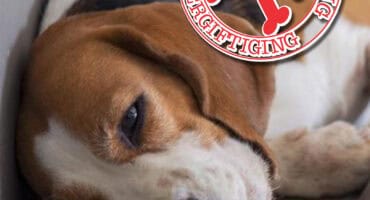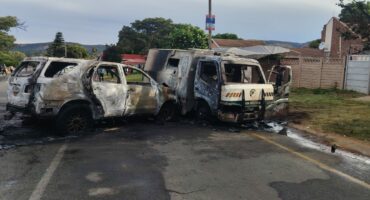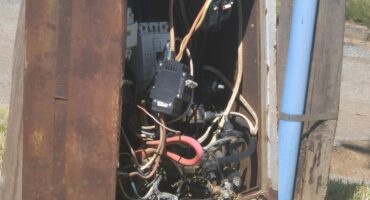Town’s infrastructure problems a knee brace for industries
Town’s infrastructure problems a knee brace for industries


In the past, labour unrest has closed the doors of several factories that once contributed to the economy and job creation of Parys. Well-known names like Saucemaster, Arwa and Nuts & Bolts are now only recorded in history books.
Now, ongoing infrastructure problems are once again threatening the economic survival of a town already hard hit during the lockdown. For business partners, Cellier Kruger and Lisa de Speville, frequent power issues meant moving their factory, Vagabond Kayaks, to George in the Western Cape.
Celliers settled in Parys in 2003 and started his first kayak manufacturing business, Fluid Kayaks, in the industrial area. He decided to establish it in Parys for its relative proximity to Johannesburg (customers, suppliers and airport) and reasonable employee salary- and factory space costs. Over the next 12 years, Celliers built a reputation in the local and international pad-dling industry as an award-winning kayak designer and manufacturer. His kayaks were exported to numerous countries around the world. After leaving Fluid years ago, he developed a new factory – also in the industrial area.
One of its first products was the Yolo compost tumbler, designed by Celliers for his business partner, Lisa de Speville, and the Yolo calf hutch. Two years ago, they launched Vagabond, a brand that predominantly focuses on high-performance recre-ational plastic kayaks. “I have employed between 10 and 30 workers at any given time over the years. In so doing, I considered myself a contributor to Parys’s general well-being by creating jobs,” Celliers says. Over the nearly two decades that he has run factories in Parys, the town has had its ups and down, particularly with infra- structure maintenance. Electricity supply is the main problem in manufacturing.
“Despite many electricity-supply problems over the years, I kept my business going and tried my best to find solutions,” he says. Their business has been built on a solid foundation over the past two years. It is attracting new customers and orders that complement their products. The factory ships container-loads of kayaks to different corners of the world. “While the Covid lockdown had a big short-term impact on our business, it bounced back once we moved to Level 3 and we could pick up on orders,” Celliers says.

At the same time, municipal load rotation kicked in. Together with Eskom load shedding and numerous daily unscheduled out-ages in the industrial area, the factory experienced weeks of four-to-seven hours of no power during the working day.
They put teams on the night shift and planned day shifts according to power schedules. With signifi-cantly reduced capacity, they struggled to keep up with demand. “Over the past six months, we have lost a small fortune in lost production hours and actual costs – materials and labour – because of the number of reject kayaks caused by the power cuts,” Celliers explains. For a business still in the “start-up” phase, they took a hard knock.
Parys must support and encourage manufacturing businesses as they can employ more workers who, in turn, support their families. But without the necessary infra- structure, companies have no choice than to move, says Cilliers. “In the past three months, I have investi-gated other options around the country; it is evident that it doesn’t have to be this way,” he says.
“After 17 years of running various businesses in Parys, I am finally pulling out the roots that I established in this town to move my factory and some employees to the Western Cape.”
They chose George because it offers reliable infrastructure, which a manufacturing business cannot do without.





